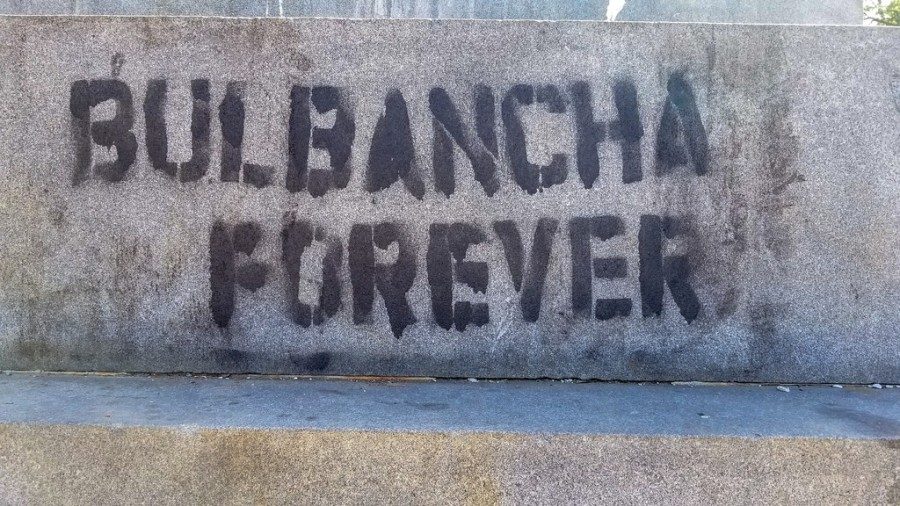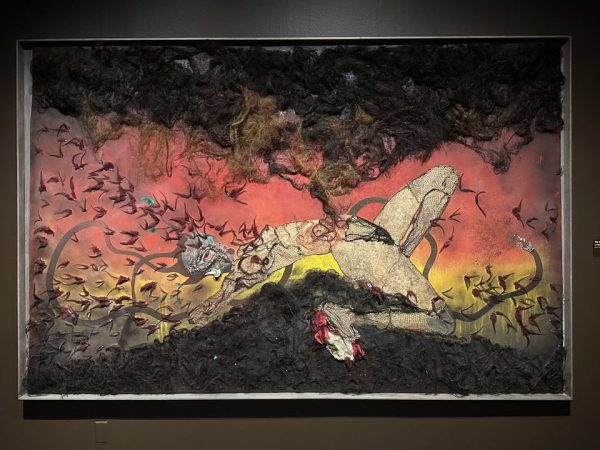Opinion: There is a proper way to celebrate ‘Native American’ Heritage Month
Every place that Americans exist in is colonized. This land does not belong to anyone who claims to own it because of contracts, land grants or any American process. This is the land of indigenous peoples, whose claims look nothing like the state borders that the European colonizers carved out in their blood.
Contrary to what most are taught in primary school, the history of America started with the stripping of indigenous people’s culture through genocide, violent assault and the widespread theft of land. The fight to defend this land was long for the native people of America, but by no means did they simply give up their land over a “nice Thanksgiving meal,” as many believe to be the case. And looking throughout history, the fight to reclaim their land and to receive the humane treatment they deserve continues on.
Indigenous peoples of the Standing Rock Sioux Tribe demanded to have clean water and keep their sacred lands in 2017 during the protest against the Dakota Access Pipeline. People from nations all around the country traveled to the resistance camp to protest in solidarity with them.
And Louisiana is by no means exempt from this history.
The Greater New Orleans area was originally referred to as Bulbancha, which translates to “the place of many tongues.” Bulbancha has always been a locale where people from different locations trade and travel, sharing and exchanging their culture with one another. The groups that originally inhabited this region include the Chitimacha, Atakapa, Caddo, Choctaw, Houma, Natchez and Tunica.

Before the 1700s, the village of the Chapitoulas “river people” lived along what we now call Tchoupitoulas Street. They lived along the Mississippi River, using it as a resource for food, travel and trade.
In 1699, Pierre Le Moyne d’Iberville first began to create a French Colony in Louisiana. A 1708 census states that the first slaves of Louisiana were indigenous men and women.
To live in this city and to choose not to recognize the entire history is erasure of an entire culture and people who are the true owners of New Orleans.
November is Native American Heritage Month. Take the time to learn more about the Federally and State Recognized Tribes of Louisiana here. Keep your eyes peeled for issues that directly affect their lives here in New Orleans.
If you want to learn more about Indigenous peoples across the country, Tulane will be hosting Dialogues on Difference: Whose Land is This? on Nov. 20, 2018 from 6-8 p.m. in the Lavin-Bernick Center Stibbs 203. This event will be facilitated by the Center of Public Service’s Community Engagement Advocates.
Also, within the city, there is an event throughout the French Quarter called “Decolonized Walk of Bulbancha”. There are dates open on November 11, 17 and 25. Sign up using the link here.
The continuous colonization of the land that we call America is far from being decolonized, but you can be an ally and help learn and then defend the rights of the people who truly belong here.
Your donation will support the student journalists of Tulane University. Your contribution will allow us to purchase equipment and cover our annual website hosting costs.

















Leave a Comment